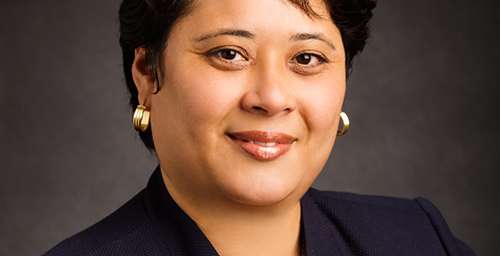School reform in post-Katrina New Orleans harmful to black community, scholars say

By most media accounts, education reform in post-Katrina New Orleans is a success. Test scores and graduation rates are up, and students once trapped in failing schools have their choice of charter schools throughout the city.
But that's only what education reform looks like from the perspective of New Orleans' white minority - the policymakers, school administrators and venture philanthropists orchestrating and profiting from these changes, say three education scholars in a new paper, published in the journal Qualitative Inquiry.
From the perspectives of black students, parents and educators—who have had no voice in the decision-making, and who have lost beloved neighborhood schools and jobs—education reform in New Orleans has exacerbated economic and cultural inequities.
Researchers Adrienne D. Dixson, of the University of Illinois, and Kristen L. Buras and Elizabeth K. Jeffers, both of Georgia State University, are the co-authors of a new study that examines the racial implications of education reform in New Orleans after Hurricane Katrina.
Each of the scholars has an insider's perspective on events in New Orleans' schools: Dixson and Buras as longtime researchers, and Jeffers as a former teacher at John McDonogh Senior High School.
McDonogh is one of three public high schools presented as case studies in the paper to illustrate the methods of dispossession that the reformers engaged in and the resistance mounted by community members.
"Parents, teachers and, importantly, students have fought back against the reforms in New Orleans schools," said Dixson, who is conducting a multiyear ethnography of African-Americans' experiences with education reform in New Orleans. "This resistance is important to document and share with a wider audience. We also wanted to speak back to the success narrative portrayed in the media, and the promotion of educational improvement for racially marginalized youth under the guise of civil rights. Genuine educational justice in urban public schools will be born only from substantive, ongoing community-based decision-making, rather than the accumulative interests of white elites."
After the 2005 hurricane, the state of Louisiana took control of 102 of Orleans Parish School Board's 117 schools—those deemed its worst performers—and appointed the Recovery School District to oversee them.
When McDonogh reopened in 2006, students had no textbooks, computers, bathrooms or water fountains, and only one certified English teacher for about 1,200 students. Yet, the newly installed school district administrators were receiving inflated salaries that were paid through hurricane relief funds, the researchers wrote.
Nonetheless, students were eager to learn, and teachers were highly engaged with their pupils—despite reports from reform advocates "that public education in New Orleans was of such low quality, the displacement of local veteran teachers and administrators was warranted and necessary," according to Jeffers.
When outside interests and local officials began pushing for McDonogh to become a charter school, constituents fought to preserve the school, its legacy and its teachers. Students, families and teachers protested the unequal distribution of resources and demanded evidence of the charter operators' effectiveness, since none of them had track records of successfully operating schools, the researchers wrote.
Many community members believe their resistance to McDonogh becoming a charter school is why a program that offered advanced placement courses was shifted abruptly from McDonogh to a charter school, the study said.
The school board eventually handed McDonogh over to the charter operator Future is Now, beginning with the 2012-13 academic year. All of the school's black veteran teachers were replaced. Two years later, Future is Now closed McDonogh, citing poor student performance and heavy financial losses.
Similar battles were fought over the chartering of New Orleans' Frederick Douglass and Walter Cohen high schools, the two other case studies explored in the paper.
While education reformers both within and outside of Louisiana tout the chartering of all the traditional schools taken over by the Recovery School District as a success, the researchers conclude that the results have been devastating for the black community—jeopardizing the future of public education, the black middle class and the historic city's long-term survival.
Some constituents view the education reform movement in New Orleans as the colonization of the city's public schools, rather than the model of equity and success portrayed in the media. From many black New Orleanians' perspectives, the takeover and conversion of public schools to charters has been "more like an assault than the positive transformation promised by education entrepreneurs, many of whom are white and relatively wealthy," the researchers wrote.
"The disproportionate enrollment and admissions practices, whereby a majority of the students in C, D and F schools are overwhelmingly African-American, while a majority of white students attend A-graded schools, is another story that needs to be told," Dixson said.
Provided by University of Illinois at Urbana-Champaign


















